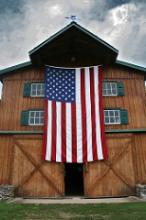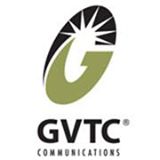
Fast, affordable Internet access for all.

Time to celebrate the work of rural cooperatives that bring high-quality Internet access to residents and businesses forgotten by national corporate providers. October is National Cooperative Month! Let’s celebrate some of the accomplishments of those cooperatives providing next-generation connectivity.
We pulled together a list of cooperatives who were actively advertising residential access to a Gigabit (1,000 Mbps) at the end of 2015. These cooperatives rang in 2016 with Gigabit speeds, inspiring others to improve rural connectivity throughout the U.S.
To assemble the list, we used Federal Communications Commission (FCC) Form 477 data from December 2015 to find all the providers advertising a residential Gigabit download speed. This generated a list of about 200 providers. Those providers were then manually sorted into “cooperative” or “not cooperative” based on publicly available information. If you would like to make a correction or suggestion concerning this list, please email htrostle@ilsr.org
2015’s Gigabit Cooperatives



Smart Rural Communities
The National Telecommunications Cooperative Association (NTCA - the Rural Broadband Association) has also created the Smart Rural Communities Program to recognize the achievements of cooperatives taking on high-speed connectivity projects. The program includes a Gig-certification process. Even if a cooperative does not advertise a Gigabit (which means they won’t appear on our list), the cooperative still has the ability to provide Gigabit connectivity. Check out the NTCA map of those cooperatives at SmartRuralCommunity.com.

2016’s Growing Gigabit Cooperatives
A number of other cooperatives have recently moved forward with Gigabit community projects. Consolidated Telephone Company (CTC), the telephone cooperative out of Brainerd, Minnesota, launched its Gigabit speed tier this year. This summer, the Custer Telephone Cooperative in rural Idaho announced a new fiber project. The cooperative’s current goal is to offers speeds of 100 Mbps, and eventually a Gigabit Internet access speeds. Other cooperatives are in the early stages of their fiber projects, such as Duck River Electric in Tennessee. The number of cooperatives taking on these projects continues to grow.
An increasing number of cooperatives are recognizing that high-speed Internet access is necessary to keep the rural U.S. competitive. Cooperatives are a community-owned, local solution to connectivity problems. You can learn about how telephone and electric cooperatives are leading the charge to bring high-quality Internet access to rural regions in North Carolina in our most recent report. Download a copy of North Carolina Connectivity: The Good, The Bad, and The Ugly. To keep up to date with stories about community networks, subscribe to our newsletter and follow @MuniNetworks on Twitter.
Photo credit: woodleywonderworks, Creative Commons license
